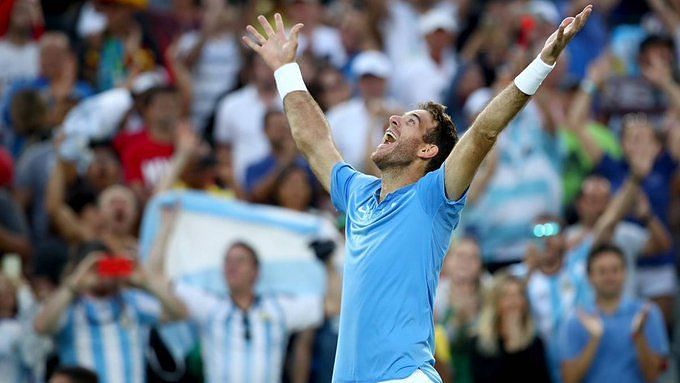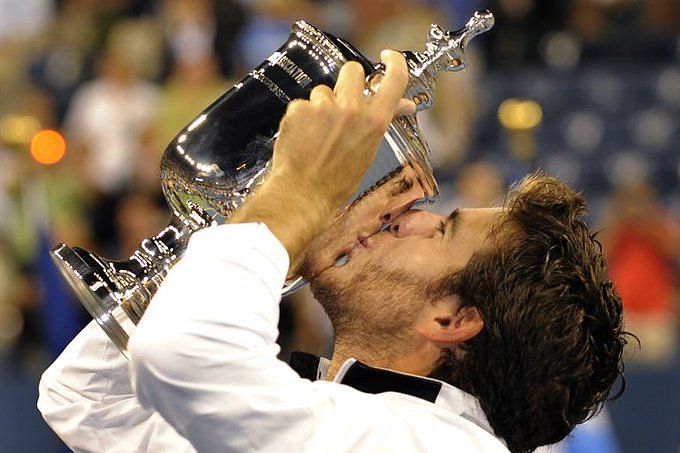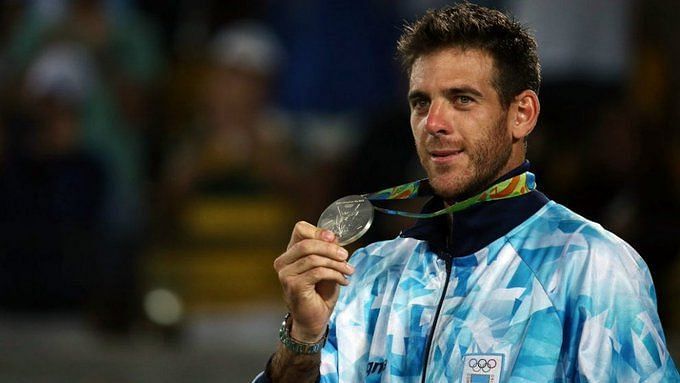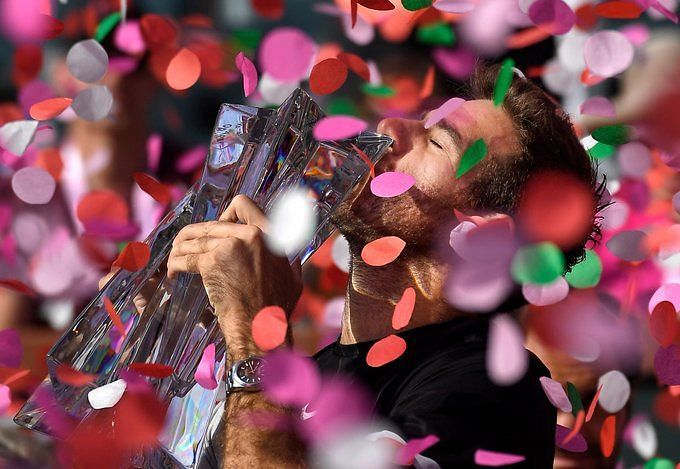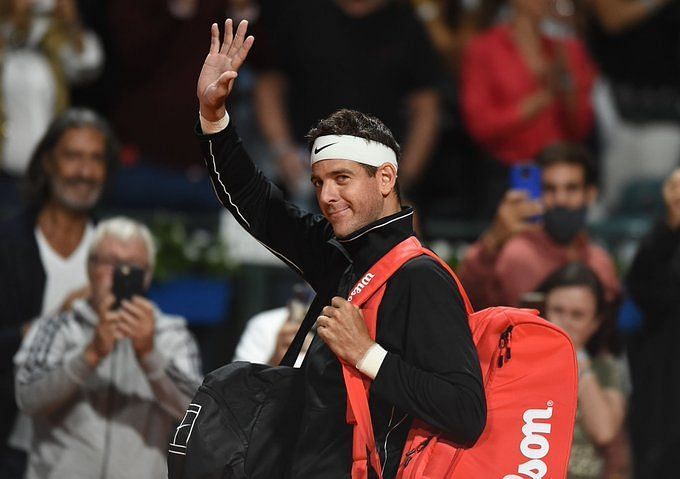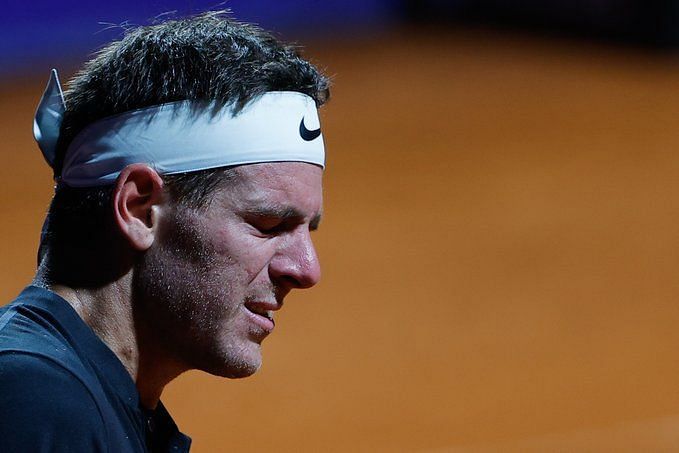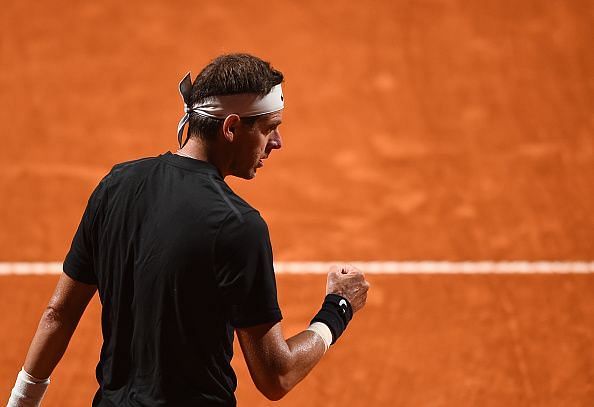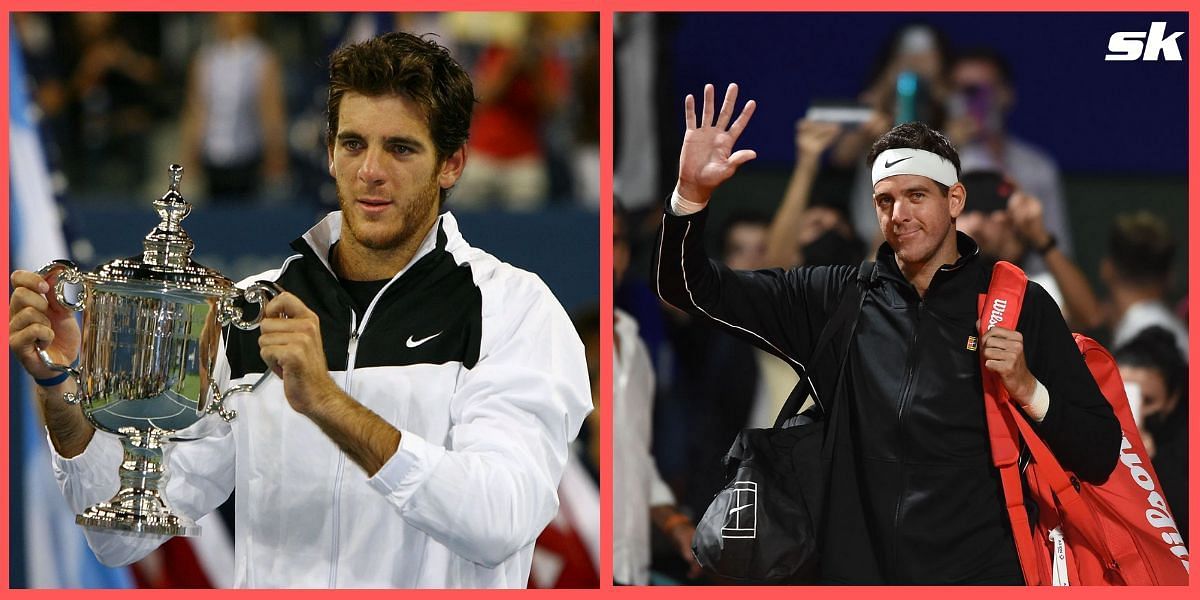
A fan's tribute to Juan Martin del Potro: A career that defied the tennis gods
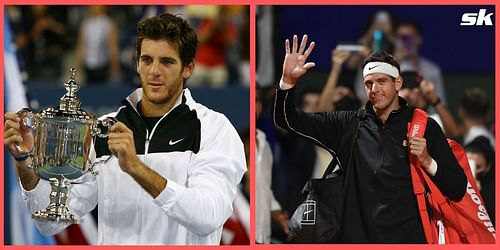
My earliest memory of Juan Martin del Potro involved watching him, clad in all-black with a brilliant yellow headband, destroy Roger Federer on an early September morning in 2009.
This giant of a man, standing six feet and six inches from the ground, pummeled the emperor of men's tennis with forehand after forehand. But the strange thing was, I felt no hatred.
And I should have. There is no question about that. Back then, one simply did not defeat the Swiss in New York. 41 matches across a span of six years were proof to show that you did not. From Albert Costa in 2004 to Novak Djokovic in 2009, everyone had tried, and everyone had failed.
The Argentine was all that stood between Federer and a record sixth consecutive title at Flushing Meadows. Another win, and Bill Tilden would have company after an 84 year-long wait. The Open Era had never seen anything like it, and it's unlikely to see anything similar ever again. Forget five titles on the trot, the US Open has not seen the same champion in back-to-back years since Federer. Anyway, I digress.
The point is, no one had remembered to pass on this vital information to Juan Martin del Potro before he woke up on 14 September 2009. Because when he took on the reigning Wimbledon and French Open champion in front of an expectant American audience, he did not look the least bit flustered.
Of course, he lost the first set. But in that era, you were lucky to come away with losing just one set to Federer. Once the nerves settled and he sunk his teeth into the match, you could see del Potro get into his own rhythm. And what rhythm it was.
It was not the safe-but-effective ploy of defensive baselining, à la Rafael Nadal, Novak Djokovic or Andy Murray, nor was it one to rely solely on a serve. It was also not the brashness of youth that involved hitting the ball as hard as one could.
Instead, it was the refined aggression of a man who knew his time had come. Everything in Juan Martin del Potro's game was designed to get that forehand into play. He would serve and position himself in a manner to easily drop the hammer. He would move things around with his backhand just to have one go at his forehand. More often than not, one forehand would suffice.
As a child who grew up adoring Federer, this was a brand of tennis I could get behind. Would that translate to trophies? I did not know and I did not care. Just watching Juan Martin del Potro in full flow was satisfying enough.
Juan Martin del Potro is a testament to how injuries can derail even the most promising of careers
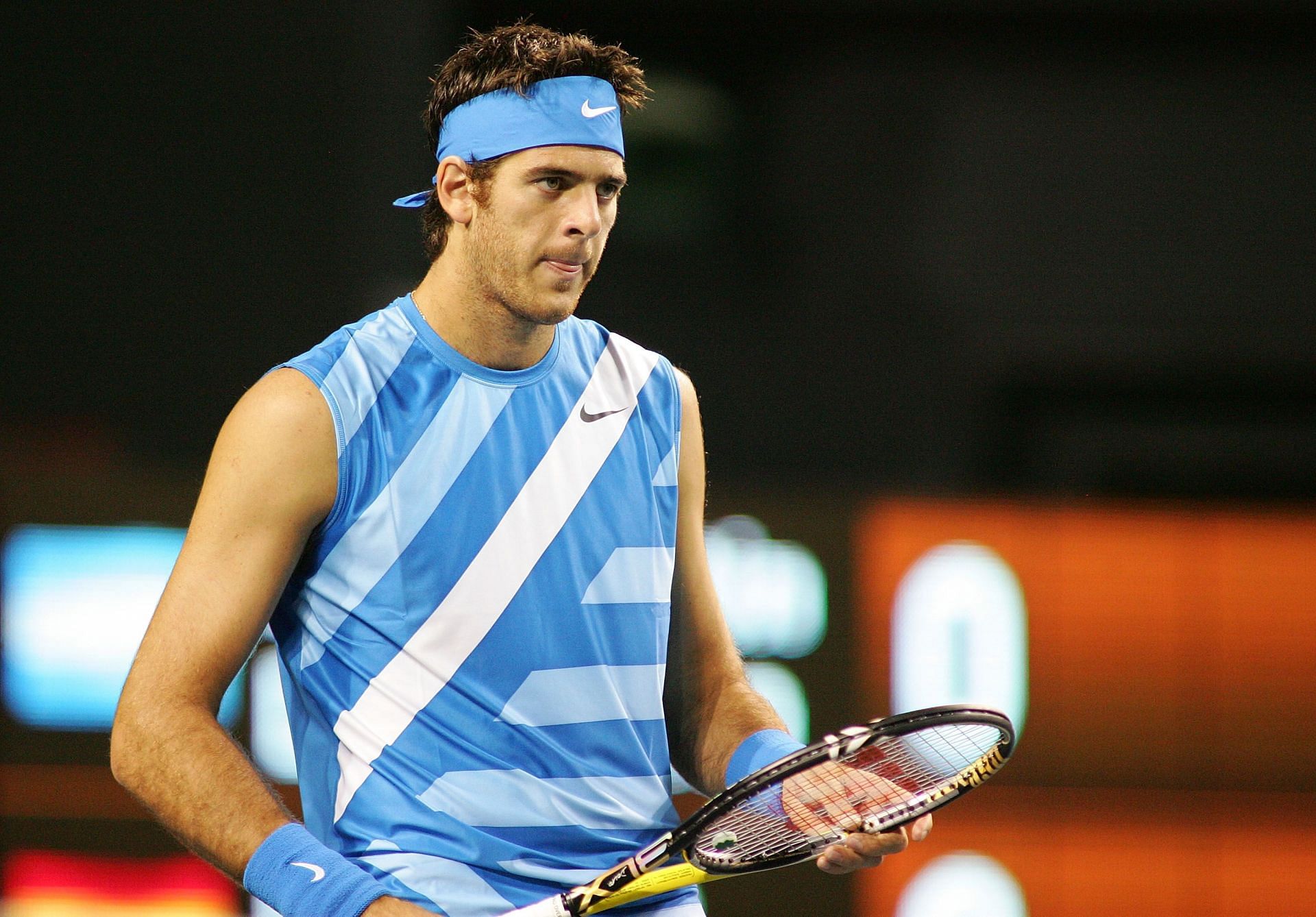
The injuries started a few months after he won the 2009 US Open. Juan Martin del Potro missed three Majors in 2010 and did not get past the fourth round in any the following year. There was a brief turnaround in 2012 as he reached three quarterfinals in addition to winning the Olympic bronze medal.
2013 saw him reach his first Grand Slam semifinal in four years, only to be hit with a second wrist injury soon after. More than two years later, the 'Tower of Tandil' returned to Wimbledon (third-round exit) and then picked up from where he left off at the Olympics.
The Argentinian won the silver medal this time around, with wins over Djokovic (first round), Roberto Bautista Agut (quarterfinals) and Nadal (semifinals). He progressed to the quarterfinals at the US Open the same year, the semifinals the next year and the final in 2018. And then, a knee injury.
This is how it was with del Potro -- he always closed in on the top, before the tennis gods struck him down. He would come back stronger and just as he started finding his groove again, the rug would be pulled from beneath his feet.
Juan Martin del Potro could not have asked for a better farewell
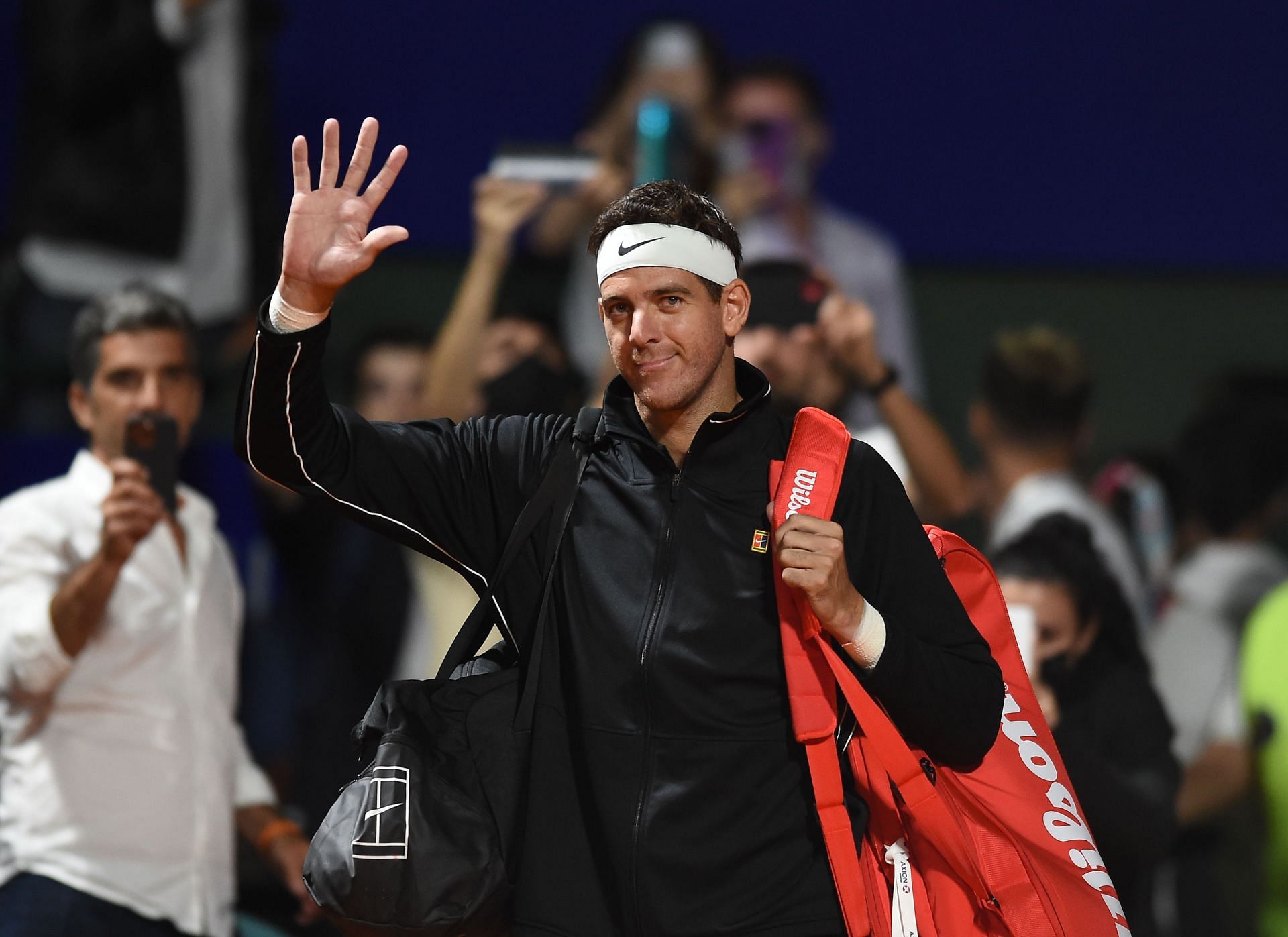
Almost three years after his most recent knee injury, Juan Martin del Potro walked out to the reception of a lifetime.
A raucous Buenos Aires crowd watched their favorite play once again as he treated them to the forehand that had destroyed more than one legend. It was certainly not his best match as he fell to a 6-1, 6-3 loss to Federico Delbonis. But the outcome was immaterial.
How fitting was it that the 33-year-old, with tears streaming down his face, lost his final service game? After all, the tennis gods would always have the last laugh. The house always wins. Never hope, and never love because February takes it all away.
At least that is what I thought until I saw his press conference after the match. Frankly, I expected him to be dismayed and disheartened. I would have understood if he had kicked and screamed on his way out. Not because that is the type of person he is, but simply because if there is one player in tennis history who has the right to do so, it is him.
But he did not. Instead, Juan Martin del Potro looked no different from the person that had graced the tennis court for 17 years.
"If today was my last match, I'm leaving happy. I gave everything I had until the last point and I am at peace with myself. My last game was in front of people and not in a conference," he said.
Upon hearing that, I realized that his final act of leaving his headband on the net took on a new meaning. It was more than just farewell. It was the final act of defiance by a man who had outlasted all that was thrown at him.
Try as they did, the tennis gods could not drag him off the court on their terms. In the end, that is all that matters in Juan Martin del Potro's tragic story. He left happily.
